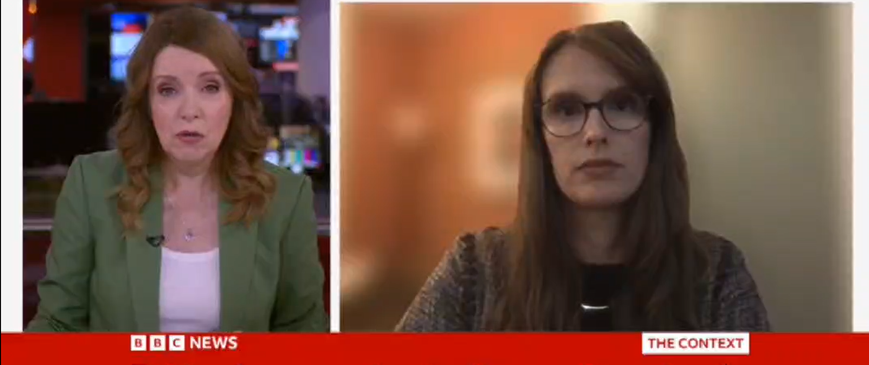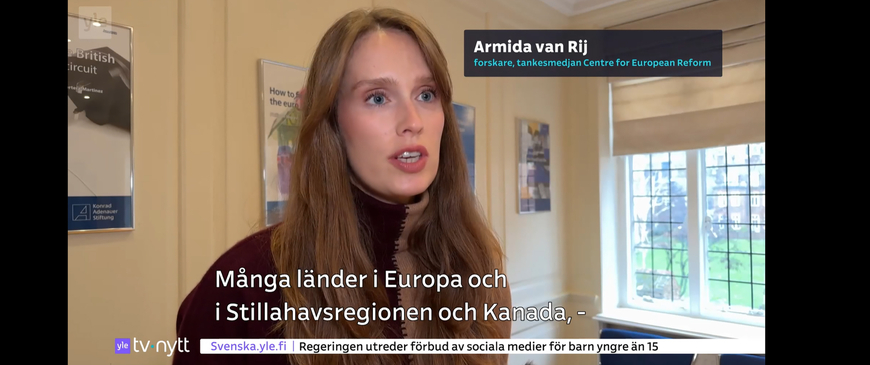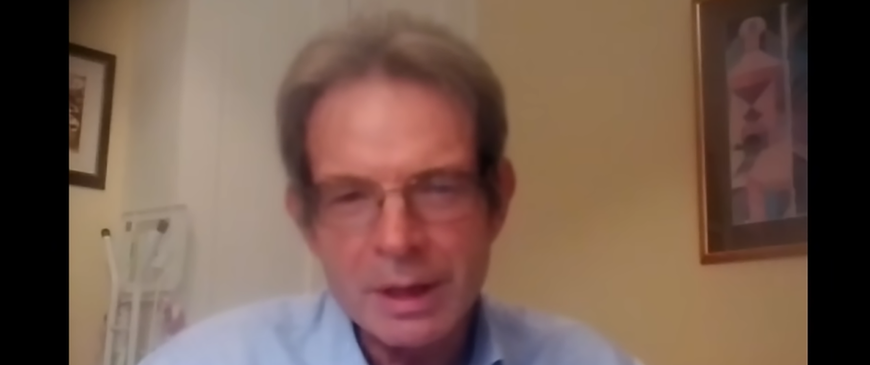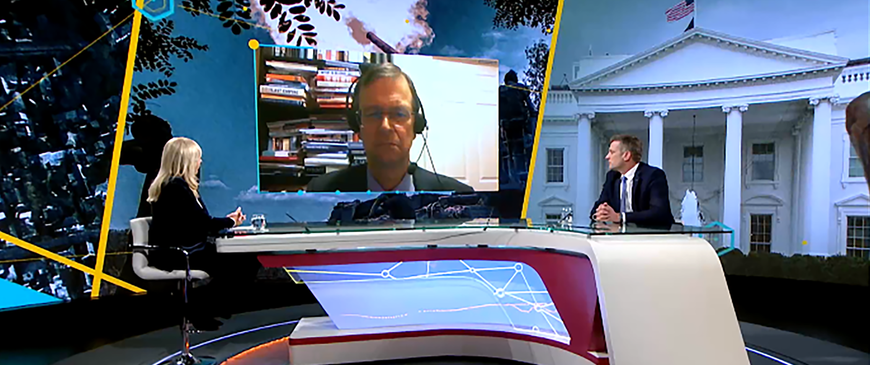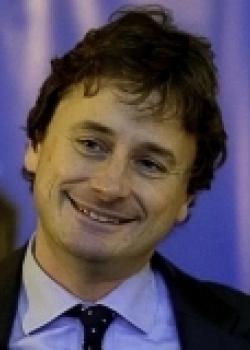Press
Britons want European Union to assert itself on the global stage
26 December 2010
The Guardian
Charles Grant, director of the Centre for European Reform, said institutions such as the European commission, the Council of Ministers and the European parliament had always been unpopular because they were "inherently unlovable. But it is encouraging that that the British people do appear to realise that one middle-sized European country can actually achieve more in many areas of policy if it acts with its neighbours than if it tries to go it alone", said Grant.
How Europe’s new goals will pay off
24 December 2010
Newsweek
"The problems are without precedent," says Centre for European Reform's Charles Grant, who predicts five years of "ghastly mess" for Europe, fraught with further political and financial tensions over debt, before the continent's economic renaissance emerges.
Election violence set to push Minsk back towards Moscow
20 December 2010
The Moscow News
"He [Lukashenko] needs to pay close attention to someone, the Belarusian economy is something of a miracle when you compare it to its [former soviet republic] neighbours, such as Moldova. That’s all of foreign provenance", Tomas Valasek from the CER told The Moscow News. ..."The Belarusian economy has always survived on subsidies, so if Lukashenko is to maintain his social contract, which requires low levels of unemployment and relatively generous welfare, he will have to turn to someone." That someone looks likely to be Russia.
Closer fiscal union: a collective guarantee
17 December 2010
The Wall Street Journal
"This is a political crisis, not an economic one, because European governments could put this crisis to bed", says Simon Tilford, chief economist at the Centre for European Reform. "If you take the aggregate picture, the eurozone doesn't have a problem," he says.
The euro: a crisis that defies answers
16 December 2010
BBC
Others like Simon Tilford from the Centre for European Reform have long argued that the only true remedy is fiscal union. However, he concedes, the "political obstacles to such a union appear insurmountable". Ultimately he believes the euro is unlikely to crack. "EU leaders," he says "will do whatever it takes to save the euro, short of setting up a fiscal union".
Slovak remark renews eurozone break-up talk
14 December 2010
NPR
"Slovakia is an interesting case," said Simon Tilford, chief economist at the London-based Centre for European Reform. As a small economy that is not yet massively integrated with the rest of the eurozone, Slovakia could envision bringing back its koruna without massive disruption to the rest of the eurozone, he said. "If Spain was forced out, the eurozone would have a huge problem," he said, referring to the far-larger Spanish economy.
Berlusconi pleads for support ahead of confidence vote
14 December 2010
International Herald Tribune
"There is no doubt that Italy is now vulnerable to a deterioration of investor sentiment", said Simon Tilford, the chief economist at the CER in London. "If they were to have a period of instability and less prudent management of the country's public finances, that could well prompt more investors to look more askance." ..."Depending on what happens with Spain, Italy can make contagion more likely and more rapid by mismanaging its fiscal position." Indeed, whatever the political outcome here on Tuesday, Mr Tilford added, "Italy isn’t out of the woods."
Putin in the public glare
14 December 2010
The Moscow News
Putin is shrewd at exploiting the power of the media and combines political grandstanding with more image conscious messages, says Katinka Barysch, deputy director of the Centre for European Reform in London. "You can either give a speech or strip your shirt off and stand in a river, he does both," she said. "He strikes me very much as the second leader of the media age, because Gorbachev was very media savvy as well. He also realised that images speak more than a thousand words," says Barysch.
The cuts that hurt the council will also scar the continent
12 December 2010
The Observer
But as Charles Grant of the Centre for European Reform, a strong believer in the eurozone, puts it: "The German medicine for the eurozone crisis - austerity and structural reform - is not enough. The problem countries will not be able to grow their way out of debt deflation."
Tougher EU bank tests could ease crisis
10 December 2010
Bismarck Tribune
"The problem of the European responses since the start of the year has been that they have always been slightly behind the curve," said Philip Whyte, a senior research fellow at the Centre for European Reform.
Financial crisis roiled eurozone in 2010
07 December 2010
Voice of America
Simon Tilford is chief economist at the Centre for European Reform. He says the financial crisis has left that vision in tatters. "Unfortunately, the necessary solidarity has been eroded by the financial crisis. The electorates of countries that have been asked to guarantee loans to the other member states are strongly resentful of that because they think why should we do that. We're rewarding them for their profligacy, or what have you.
WikiLeaks cables reveal secret NATO plans to defend Baltics from Russia
06 December 2010
The Guardian
"Most of the information on this is not in the public domain. But the bottom line is that there is enough political will in NATO now to do defence plans for the Baltic states. The opposition has melted away over the past 18 months," said Tomas Valasek, defence analyst at the Centre for European Reform. … "The whole point is not to paint Russia as a threat. It is about reassuring those countries that are seriously worried. The debate is primarily about Poland and the Baltic. Geography has a lot to do with it," said Valasek.
Trichet aguanta el tirón (por ahora)
05 December 2010
El Pais
Se romperá el euro, titula su trabajo Charles Grant, director del Centre for European Reform (CER), quien cree de todas formas que, a pesar de todas las dificultades, "es improbable que el euro se fracture". Y significa que "muchos anglosajones subestiman la fuerza de la voluntad política que lo sostiene". ... Simon Tilford, economista jefe del CER, no tiene ninguna duda de que la "unión fiscal" es imprescindible para reconducir la crisis. Insiste en que "la crisis de la deuda soberana de la eurozona es política, no es un problema económico".
Brussels summit to cement EU-Russia ties
05 December 2010
SBS Radio News
"Russia's entry to the WTO would be very positive, but other issues are showing little progress," said Katinka Barysch of London-based think-tank, the Centre for European Reform.
Debt crisis forces Europe's currency union to change
05 December 2010
Hürriyet Daily News
One solution might be to restructure those countries' debts now and allow them to get their economies in order under humane circumstances, said Simon Tilford, chief economist at the Centre for European Reform. Such a simultaneous shock-and-awe move, Tilford said, might stop contagion and take pressure of Italy and Spain. "By going halfway, you're making everything worse," he said.
ECB 'climbdown' boosts markets
01 December 2010
The Guardian
Simon Tilford, chief economist at the Centre for European Reform, said: "As it stands ... a number of member states are effectively insolvent and caught in a vicious circle. The collapse of economic growth has devastated tax revenues, while deflation threatens to push up the real value of their debts."
Lisbon treaty weathers stormy first year
01 December 2010
EU Observer
Others say it is too early to judge the Lisbon Treaty, adding that many of Europe's current problems are unrelated to the document. "The Lisbon Treaty is not like a new US president, you can't measure its first 100 days," Hugo Brady of the Centre for European Reform, a London-based think-tank, told this website. … "She has been starting from scratch so it takes time. It is quite an achievement to create an institution. … The EU is a little bit more democratic," said Mr Brady.
Europe's crisis widens
30 November 2010
The Wall Street Journal
"By their actions, the Germans have unsettled the markets and brought about what they're hoping to prevent," said Simon Tilford, chief economist at the Centre for European Reform, a London think-tank.
Analysis: Is eurozone running out of time on debt crisis?
30 November 2010
Reuters
"When it comes to EU politicians and the markets, there is definitely an asymmetry of arms," said Hugo Brady, a senior policy analyst at the Centre for European Reform, a think-tank. "One criticism has been that political leaders move incrementally, rather than in big steps, for understandable reasons," he said, pointing out that politicians have voters and other constituencies to consider, which markets do not. "In my view, the period of sending signals to the markets and seeing how they react has to end. It's not a game the politicians are winning.
Berlin reconciles itself to bailouts
30 November 2010
The Wall Street Journal
"The Germans have accepted that there will be more bailouts," says Simon Tilford, chief economist at the Centre for European Reform, a London-based think-tank. "They have compromised on their demand that haircuts for bondholders should be automatic," he says.

